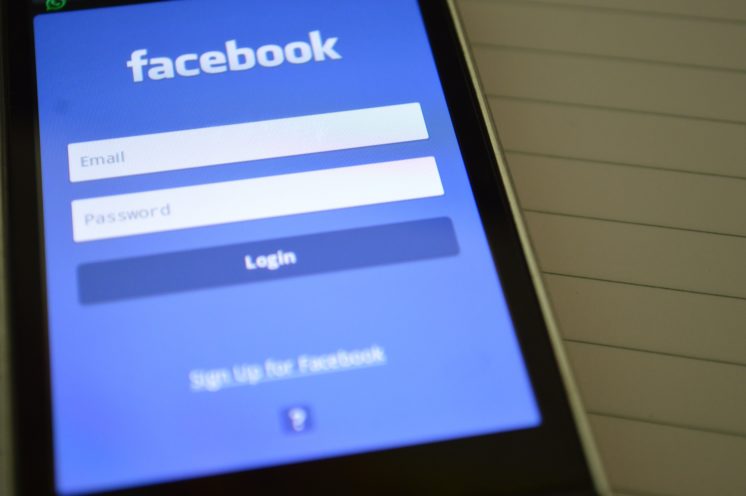In 2018, tech giant Facebook claimed to be seeking better data protection but continued lobbying against binding regulations, showing how companies use lobbying to avoid a stricter regime for safeguarding human rights.

In March 2018, whistleblower Christopher Wylie revealed to The Observer how the data firm Cambridge Analytica was exploiting private user data from Facebook.[1] Cambridge Analytica worked with both President Donald Trump’s election campaign as well as the Brexit ‘Leave’ campaign in the UK, and is now under investigation for its potential influence over these results and misuse of data.
Britain’s Information Commissioner’s Office found that Cambridge Analytica violated British law in its data harvesting.[2] Internal documents leaked from Cambridge Analytica and Facebook revealed that Facebook was aware of the data breach, but did not take sufficient steps to notify users and secure the data of more than 50 million Facebook users.[3]
In the wake of the public relations fall-out from the Cambridge Analytica scandal, Facebook and its founder Mark Zuckerberg launched a massive public relations campaign and apology tour. Facebook immediately mobilised its internal PR team and hired Definers Public Affairs to downplay and apologise for Facebook’s involvement in the scandal.[4]
As part of this apology campaign, Facebook took out full-page ads in British and American newspapers stating, “We have a responsibility to protect your information. If we can’t, we don’t deserve it.” In these ads, Zuckerberg said that Facebook was committed to “limiting the data apps get”.[5] Zuckerberg agreed to testify in a US Congressional hearing and declared the company was “ready for new federal regulations”.
However, the public pledges to do better fly in the face of Facebook’s continuous lobbying efforts to avoid increased data protection legislation.[7] Documents obtained by the New York Times in December 2018 showed that Facebook allowed certain companies to access data they claimed was restricted. Apart from breaching the right to privacy and public trust, Facebook may have also violated a 2011 agreement with the US Federal Trade Commission (FTC) that requires explicit consent from users before sharing their data.[8] The report based on an inquiry of the British parliamentary Digital, Culture, media and Sport Committee into disinformation and fake new includes an even stronger allegation, stating that Facebook “intentionally and knowingly violated both data privacy and anti-competition laws”.[9]
Despite public apologies and a massive PR campaign, Facebook’s actions behind the scenes suggest that the tech giant remains committed to avoid a stricter regime when it comes to respecting the right to privacy.
[1] Carole Cadwalladr and Emma Graham-Harrison, “Revealed: 50 million Facebook profiles harvested for Cambridge Analytica in major data breach”, The Guardian, March 17, 2018, https://www.theguardian.com/news/2018/mar/17/cambridge-analytica-facebook-influence-us-election (accessed November 6, 2019).
[2] Adam Satariano and Nicholas Confessore, “Cambridge Analytica’s Use of Facebook Data Broke British Law, Watchdog Finds”, The New York Times, November 6, 2018, https://www.nytimes.com/2018/11/06/technology/cambridge-analytica-arron-banks.html (accessed November 6, 2019).
[3] Lauren Aratani, “Facebook, Facing Backlash, Fires PR Firm It Hired To Discredit Soros, Other Critics”, Forbes, November 15, 2018, https://www.forbes.com/sites/laurenaratani/2018/11/15/facebook-facing-backlash-fires-pr-firm-it-hired-to-attack-soros-other-critics/ (accessed November 6, 2019).
[4] Aratani.
[5] Sheena McKenzie, “Facebook’s Zuckerberg says sorry in full-page newspaper ads”, CNN, March 25, 2018, https://edition.cnn.com/2018/03/25/europe/facebook-zuckerberg-cambridge-analytica-sorry-ads-newspapers-intl/index.html (accessed November 6, 2019).
[6] Sheera Frenkel and others, “Delay, Deny and Deflect: How Facebook’s Leaders Fought Through Crisis,” The New York Times, November 14, 2018, https://www.nytimes.com/2018/11/14/technology/facebook-data-russia-election-racism.html?utm_campaign=The%20Interface&utm_medium=email&utm_source=Revue%20newsletter (accessed November 6, 2019).
[7] Frenkel and others.
[8] Gabriel J.X. Dance, Michael LaForgia and Nicholas Confessore, “As Facebook Raised a Privacy Wall, It Carved an Opening for Tech Giants”, The New York Times, December 18, 2018, https://www.nytimes.com/2018/12/18/technology/facebook-privacy.html (accessed November 6, 2019).
[9] Digital, Culture, Media and Sport Committee, “Disinformation and
‘fake news’: Final Report”, the House of Commons to the United Kingdom, February 18, 2019, p.42 https://publications.parliament.uk/pa/cm201719/cmselect/cmcumeds/1791/1791.pdf (accessed July 7, 2020)
